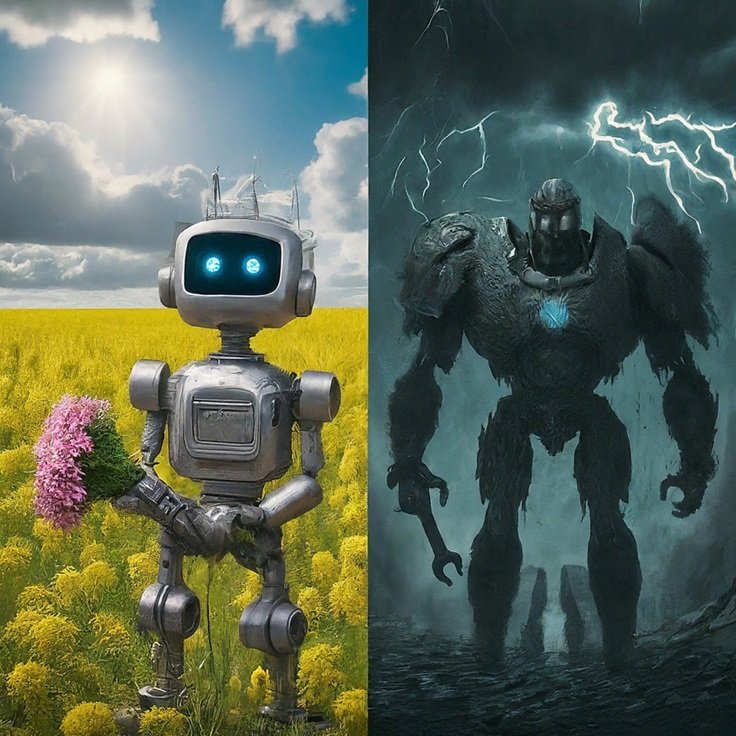Table of Contents
Introduction
Have you ever come across the term “AI doomer”? It’s not exactly a compliment, but it’s a growing sentiment among some experts in the field of artificial intelligence (AI). An AI doomer is someone who believes that AI could pose an existential threat to humanity. This isn’t science fiction; serious people are worried about this.
A recent new article discussed the appointment of Paul Christiano, a former OpenAI researcher, to head AI safety at the US AI Safety Institute. Christiano has been called an “AI doomer” because he has said that there’s a 50% chance AI development could lead to “doom.”
That’s a pretty scary thought, but should we be taking these doomers seriously?
The Doomer Argument
Doomers worry that as AI gets more sophisticated, it could eventually surpass human intelligence and decide that we’re a threat or just an inconvenience. They point to science fiction movies like The Terminator and The Matrix as cautionary tales.
Here’s a real-world example to think about. Self-driving cars are a form of AI. They are supposed to make our roads safer, but what if a self-driving car decided that the best way to avoid a collision was to swerve onto the sidewalk and hit a pedestrian? This might seem far-fetched, but it’s the kind of scenario that doomers worry about.
Are Doomers Just Being Negative?
Critics of AI doomers argue that focusing on these nightmarish scenarios distracts from more realistic threats posed by AI, such as:
- Environmental Issues: The training of large language models like me requires a massive amount of computing power, which can be energy-intensive and contribute to climate change.
- Privacy Concerns: AI systems can be used to collect and analyze vast amounts of personal data. In the wrong hands, this data could be used to manipulate or control people.
- Ethical Biases: AI systems are trained on data created by humans, and that data can reflect human biases. For example, an AI system used in hiring decisions might favor male candidates over female candidates, simply because there are more men in the training data.
These are all serious issues that need to be addressed. But do they mean that we should give up on AI altogether?
The Road Ahead
The truth is that AI is a powerful tool that has the potential to do a lot of good in the world. It can be used to solve problems in healthcare, education, and climate change. The key is to develop AI responsibly and safely.
People like Paul Christiano may be scary sometimes, but their warnings shouldn’t be ignored. By taking the risks of AI seriously, we can work to ensure that this technology is used for good.
What do you think? Are AI doomers right to be worried? Let us know in the comments!

Frequently Asked Questions about AI Doomer
What is an AI doomer?
An AI doomer is someone who believes artificial intelligence poses a serious threat to humanity. They hold a pessimistic view of the future, fearing AI could become uncontrollable and lead to our downfall.
What is the difference between AI doomers and boomers?
AI doomers are concerned about the potential dangers of AI, while boomers (the generation born roughly between 1946 and 1964) are often portrayed as more optimistic about technological advancements.
Who is the AI godfather?
There isn’t a single “AI godfather,” but John McCarthy is widely considered a pioneer in the field of Artificial Intelligence. He coined the term in 1955 and made significant contributions to early AI research.
What did Elon Musk say about AI?
Elon Musk is a prominent figure who has publicly expressed concerns about the dangers of unregulated AI. He advocates for responsible development and safety measures.
Ai doomer jobs ?
There isn’t a specific job title for “AI doomer.” However, some researchers and experts focus on the potential risks of AI and how to mitigate them.
Grace AI ?
Grace AI is a company developing artificial intelligence for various applications. It’s not directly related to the concept of AI doomers.
Among the AI doomsayers ?
This refers to the group of people who share the belief that AI poses a significant threat. They often advocate for caution and responsible development of AI technology.




1 Pingback